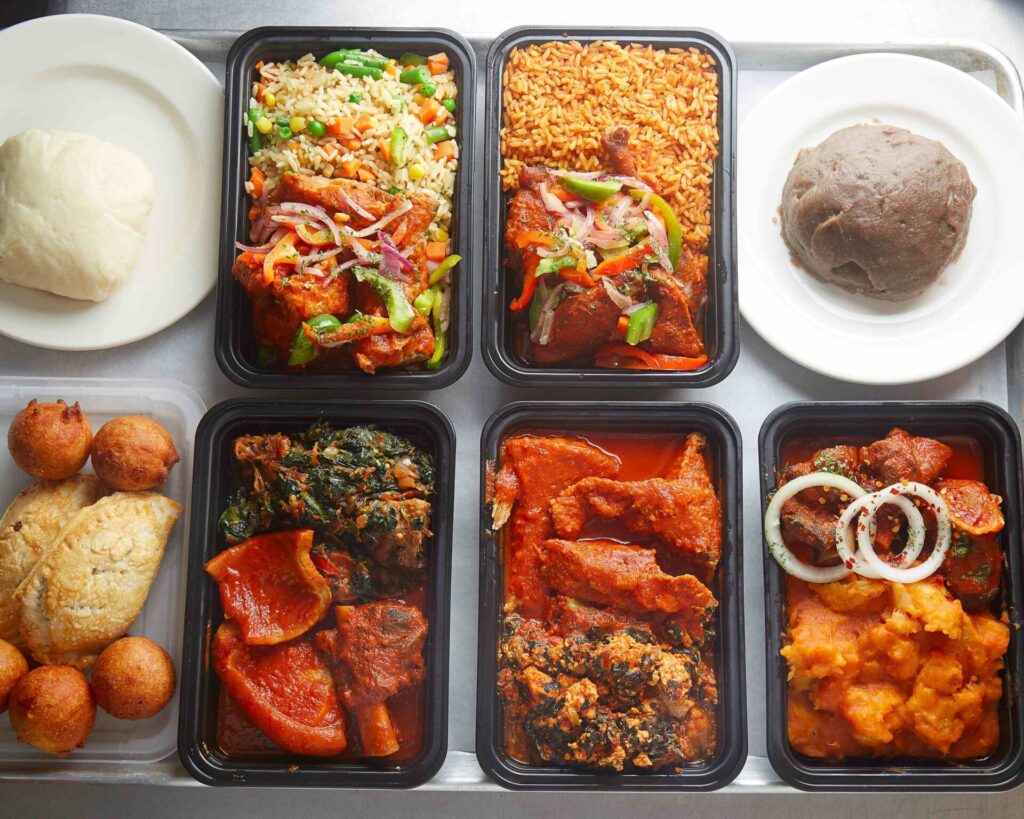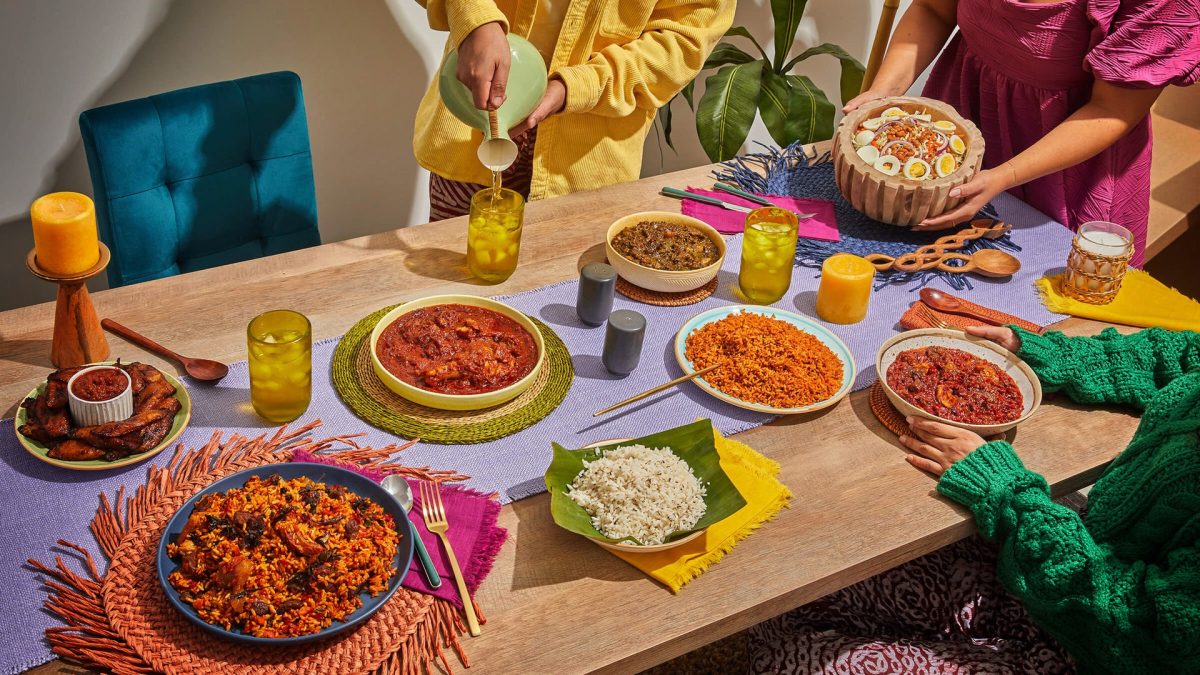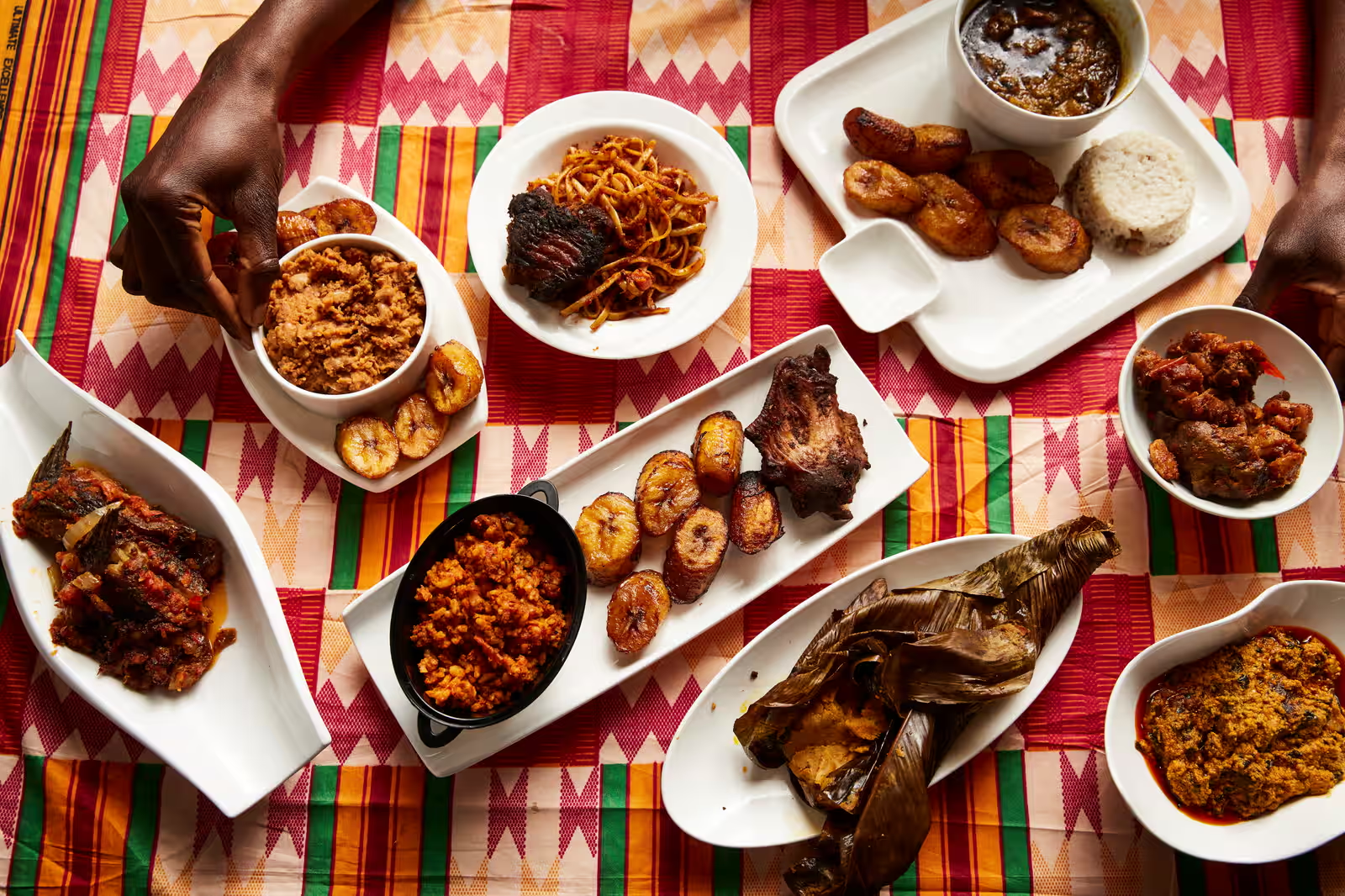Nigerian food is more than just nourishment—it’s a deep reflection of history, culture, and identity. Across its diverse ethnic groups, Nigeria’s traditional cuisine carries stories of heritage, resilience, and community bonding. From the northern shinkafa to the southern banga soup, every dish tells a tale of ancient trade routes, colonial influences, and Indigenous creativity.
Let’s take a journey through the history and cultural significance of Nigerian food and how it continues to shape the way people eat today.
1. The Origins of Nigerian Cuisine
Nigeria’s culinary history is rooted in the agricultural practices of its indigenous people. Traditional farming of staples such as yam, millet, maize, and cassava shaped the foundation of Nigerian food. Fishing communities along the coastlines of the Niger Delta and Lake Chad have also long relied on freshwater fish and seafood.
Trade and migration played a key role in expanding Nigeria’s culinary landscape. Spices, rice, and other ingredients were introduced through trans-Saharan trade routes and European colonization, influencing the diverse food culture seen today.
Key Historical Influences on Nigerian Cuisine:
- Trans-Saharan Trade: Introduced spices, nuts, and dates to northern Nigerian dishes.
- Portuguese & British Colonization: Brought maize, tomatoes, and chili peppers.
- Inter-Tribal Exchange: Expanded the use of ingredients like palm oil, ogbono, and locust beans.
2. Regional Diversity in Nigerian Food
Nigeria is home to over 250 ethnic groups, each with its distinct food traditions. Here’s a look at some iconic regional dishes:
Northern Nigeria
- Tuwo Shinkafa: Soft rice meal served with soups like miyan kuka.
- Kilishi: Spiced and sun-dried meat similar to beef jerky.
- Masa: Rice-based pancakes often paired with honey or spicy sauce.
Western Nigeria
- Amala and Ewedu Soup: A Yoruba classic, featuring yam flour and leafy soup.
- Ofada Rice and Ayamase (Designer Stew): Local rice served with spicy, green pepper sauce.
- Akara: Fried bean cakes, a staple street food.
Eastern Nigeria
- Oha Soup: A rich soup made with oha leaves, thickened with cocoyam.
- Abacha (African Salad): A cassava-based dish eaten with palm oil sauce and proteins.
- Ukodo: Yam pepper soup is often prepared with catfish or goat meat.
Southern Nigeria
- Banga Soup: A palm nut-based delicacy, paired with starch or rice.
- Pepper Soup: A spicy broth made with assorted meats and local spices.
- Starch and Owo Soup: A Delta favorite made from fermented starch and smoked fish.
3. The Role of Food in Nigerian Culture
Food in Nigeria is more than just sustenance—it represents celebration, family, and tradition. Many meals are linked to important cultural and religious practices, making food a significant part of communal bonding.
Food and Festivities:
- Jollof Rice at Parties: No Nigerian wedding, birthday, or celebration is complete without this iconic dish.
- New Yam Festival: Celebrated by Igbo people to honor the yam harvest season.
- Sallah & Eid Feasts: A time for sharing meals like ram meat, tuwo shinkafa, and kunu among friends and family.
Food as Identity:
For many Nigerians, food is a marker of identity and belonging. Certain meals are strongly tied to specific tribes, and eating them evokes nostalgia and cultural pride.
4. Modern Trends: Nigerian Food Goes Global
In recent years, Nigerian cuisine has gained international recognition, with restaurants in the UK, US, and beyond serving classics like suya, moi-moi, and egusi soup. Nigerian chefs are also modernizing traditional recipes, making them accessible to a global audience.
Why Nigerian Food is Gaining Popularity Worldwide:
- Health Benefits: Many dishes are rich in fiber, protein, and natural ingredients.
- Bold Flavors: The use of spices, herbs, and palm oil creates unique, vibrant tastes.
- Cultural Appeal: Nigerian food tells a story of heritage, making it attractive to food enthusiasts worldwide.
Final Thoughts: Preserving the Heritage of Nigerian Food
Nigerian food is a powerful expression of history, culture, and community. As its popularity continues to grow, it remains important to preserve the authenticity of traditional recipes while embracing new culinary innovations.
At Aemo Foods, we are committed to bringing the rich heritage of Nigerian cuisine to your doorstep, offering fresh and high-quality ingredients to help you prepare your favorite dishes with ease.
✅ Shop now at Aemo Foods for authentic Nigerian ingredients!




